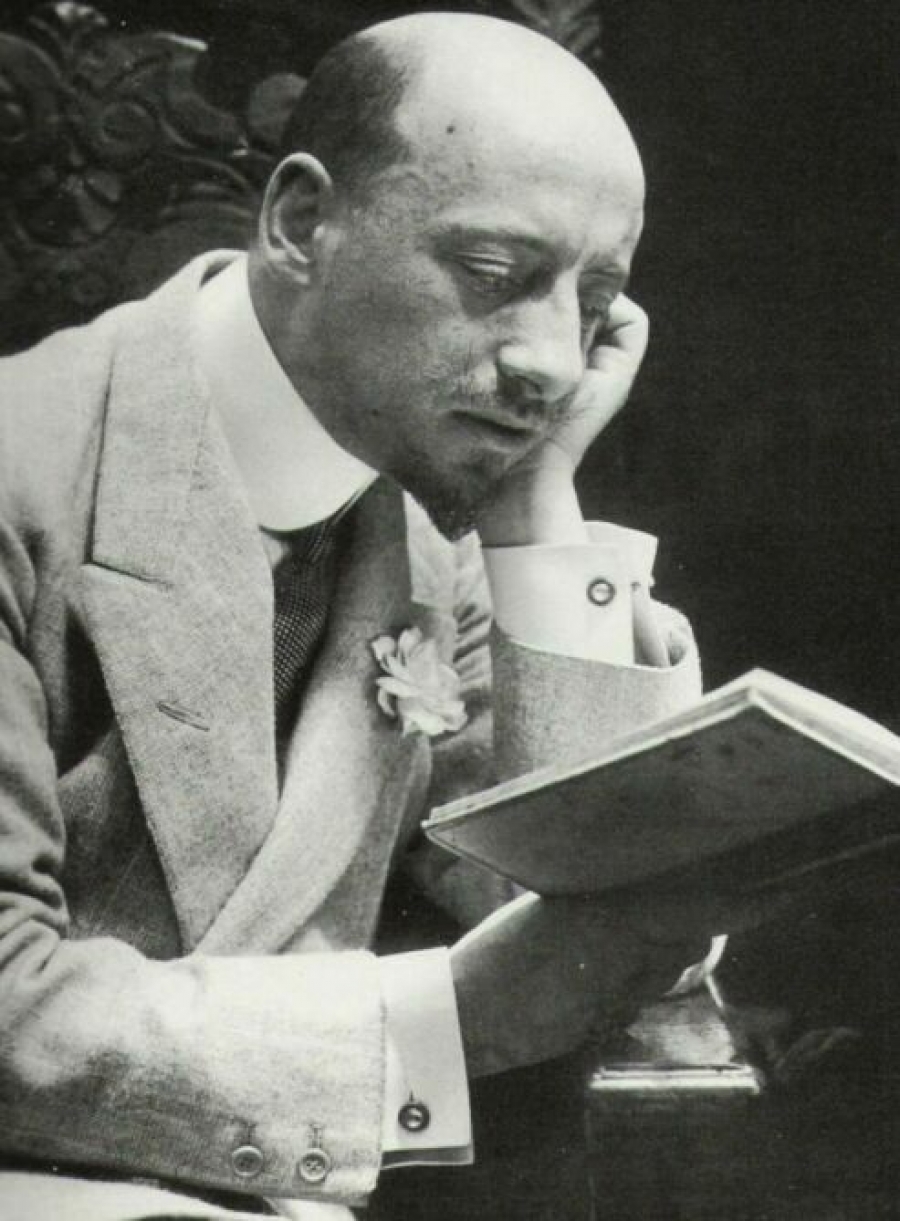Review: Gabriele D'Annunzio - Pleasure
“Everywhere, roses roses roses drifted down, slowly, densely, delicately, like snowfall at dawn.”
Gabriele D'Annunzio
In my opinion, Penguin should have chosen a different photo for the cover of this book.
You would be forgiven if, seeing the actual cover, you mistake the book (Englished as Pleasure) as an addition to the Italian corpus of erotic works (which include Boccaccio's The Decameron, and Aretino's Ragionamenti), or even an Italian Fanny Hill.
D'Annunzio's place in the pantheon of great Italian poets is widely acknowledged, but it is easy to forget that such major twentieth-century authors as James Joyce and Marcel Proust were great admirers of his novels.
But you wouldn't be more wrong. There are provocative parts (which this translation faithfully restores), to be sure, but D'Annunzio's Pleaure is a beautifully written novel which among other things, I would describe as Aesthetic Bliss.
One of the many striking things about reading Pleasure is its obsessive interest in things, in the buying and possessing of beautiful objects, of furniture and décor, drapes, bowls, bric-a-brac. Sperelli is obsessed with surrounding himself with beautiful things . . .
The protagonist, Andrea Sperelli, is an alter ego of the young D'Annunzio: a poet and refined aesthete, a slave to beauty and pleasure . . .
Displaying a delicate spirit inclined toward things of intelligence, toward rarity of taste, toward aesthetic pleasure.
A more appropriate image for the front cover, perhaps, could be a detail from The Roses of Heliogabalus by Sir Lawrence Alma-Tadema
There was a rainfall of roses in the sky
The symbolic use of roses is employed very often by D'Annunzio,
The recurring references to roses in this novel are significant. Roses have many meanings, but with regard to this novel, there are two that are most significant: that of symbolizing the female sex organs, and that of being associated with the Virgin Mary. In this novel, which frequently juxtaposes the sacred and the profane, the rose could be seen to be the most representative symbol of this juxtaposition.
and both the book and painting are set in Rome; although perhaps the main character would object, preferring a more modern depiction of the eternal city:
Rome was his great love: not the Rome of the Caesars but that of the popes; not the Rome of the arches, of the thermal baths, of the forums, but the Rome of the villas, of the fountains, of the churches. He would have given the entire Colosseum for Villa Medici, Campo Vaccino for Piazza della Spagna, the Arch of Titus for the Fountain delle Tartarughe. The princely magnificence of the Colonnas, of the Dorias, of the Barberinis attracted him vastly more than the ruins of imperial grandeur.
The world that D'Annunzio describes is the Rome of the nineteenth century, only recently the capital of Italy, with one foot in the old papal Rome, a sleepy, provincial, but extravagantly beautiful city dominated by the old aristocracy, and a newer world of lawyers, politicians, and a rising bourgeoisie. D'Annunzio—the lover of beauty—sides clearly with the first over the second.
I enjoyed this a lot, and it's one of my favourite novels.
"he young man felt his soul overcome by it.
D'Annunzio's writing is a joy to read; it is beautiful and rich, with a flowing quality which washes over you:
Have you ever seen certain sweetmeats from Constantinople, as soft as dough, made from bergamot, orange blossom, and roses, which perfume your breath for the rest of your life?
I enjoyed the story on various levels,
Oh, the story . . . is a marvel! Anabasis was nothing compared with this!
and for multiple reasons. One of which is the immersive scenes he evokes with his meticulously detailed descriptions of objects and people.
My eyes were mistaken, drunk on perfumes.
Another is that it combines two things very close to my heart: aesthetics
Art! Here was the faithful Lover, always young, immortal; here was the Source of pure joy, forbidden to the multitude, conceded to the elect; here was the precious Food, which makes man similar to a god. How could he have drunk from other cups after bringing his lips to that one?
and the city of Rome.
Divine Rome!
How marvelous! You are right to be so in love with Rome.
I also feel Andrea and I have a little in common
By nature of his taste, he sought out multiple aspects of enjoyment . . . the complex delight of all the senses, intense intellectual emotion, abandons of sentiment, impulses of brutality. And because he sought out these things with skill, like an aesthete, he naturally drew from the world of objects a great part of his exhilaration.
I could go on and on, but for the sake of brevity, I close with some information about the author from the Introduction:
Having imbibed some Nietzsche, D'Annunzio saw himself as a kind of superman and was not content with mere literary fame . . . "The world . . . must be persuaded that I am capable of anything," he wrote during his first electoral campaign.
The creation of his persona was D'Annunzio's principal vocation in life and art. He regarded life itself as a work of art. "Life imitates Art, far more than Art imitates Life", wrote Oscar Wilde, with whom D'Annunzio had much in common. In Pleasure, published in 1889 when D'Annunzio was only twenty-six, he created an exceptionally complex game of life and art imitating each other in infinite regression, like a pair of opposing mirroprs in which it is impossible to distinguish the object from the reflection.
“The true reader is not really the one who buys me, but the one who loves me.”
“True glory is posthumous, and therefore not able to be enjoyed.”
“I like it!”










